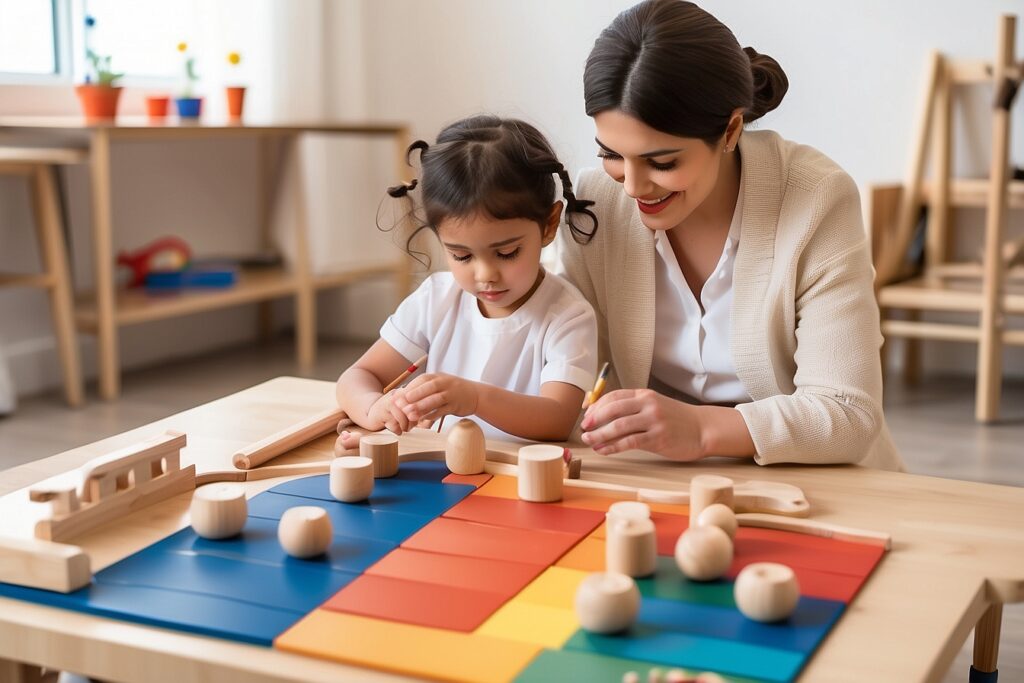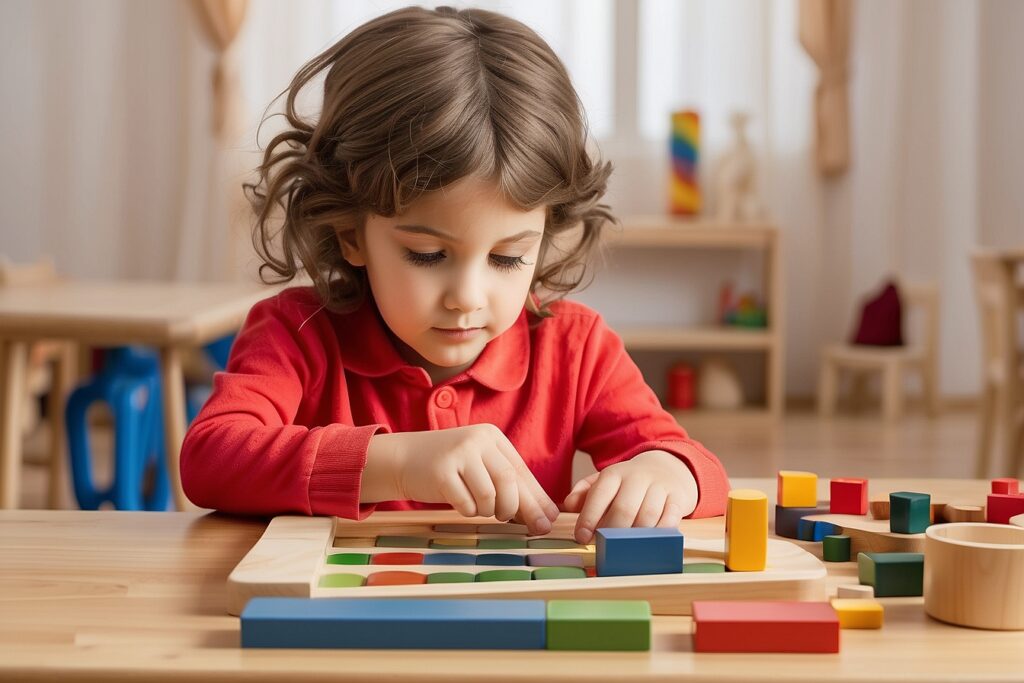
In the realm of early education, one approach stands out for its unique philosophy and proven effectiveness – Montessori education. As a parent, I’ve witnessed firsthand the transformative impact of this method on my child’s learning and development. In this blog post, I’ll share my perspective on why I believe in Montessori education.
Understanding Montessori Education
Montessori education, named after its founder Dr. Maria Montessori, is a child-centered educational approach that values the human spirit and the development of the whole child—physical, social, emotional, cognitive. Unlike traditional education methods, Montessori education emphasizes self-directed activity, hands-on learning, and collaborative play.
Children in Montessori classrooms make creative choices in their learning, while the classroom and the teacher offer age-appropriate activities to guide the process. This approach has been proven to foster a love for learning and encourage children to become confident, independent learners.
source : National Center for Montessori in the Public Sector
A Parent’s Perspective on Montessori Education

As a parent, my primary concern has always been the holistic development of my child. When I first introduced my child to a Montessori classroom, I was amazed by the transformation I saw. The self-directed activities allowed my child to explore their interests and learn at their own pace. This not only boosted their confidence but also instilled a love for learning.
The hands-on learning approach in Montessori education helped my child understand complex concepts easily. The collaborative play fostered social skills and taught them the importance of teamwork and respect for others.
From my perspective, Montessori education has played a pivotal role in shaping my child’s personality and intellectual growth.
Comparing Montessori Education with Traditional Education Methods
When comparing Montessori education with traditional education methods, several differences become apparent. Traditional education often follows a set curriculum, with a one-size-fits-all approach. On the other hand, Montessori education is tailored to the individual needs and interests of each child, promoting a more engaging and effective learning experience.
In traditional classrooms, children often learn passively by listening to the teacher’s instructions. In contrast, Montessori classrooms encourage active learning, where children are involved in hands-on activities and learn by doing.
Moreover, traditional education often focuses on academic achievement, while Montessori education emphasizes the development of the whole child – physical, social, emotional, and cognitive.
From a parent’s perspective, I found that the Montessori method not only catered to my child’s academic needs but also nurtured their personal and social development.
The Role of Parents in Montessori Education

Parents play a crucial role in Montessori education. As a parent, I found that my involvement was not just encouraged but was integral to my child’s learning process.
In Montessori education, parents are seen as partners in their child’s education. We are encouraged to understand the Montessori philosophy and incorporate it at home. This could be as simple as setting up a child-friendly space at home that encourages independence or involving the child in everyday tasks to promote practical life skills.
Moreover, regular communication with the Montessori teacher helped me understand my child’s progress and how I could support them at home. This partnership between parents and educators is one of the many reasons why I believe in Montessori education.
Conclusion
In conclusion, Montessori education offers a unique approach to early education that nurtures the whole child. As a parent, I’ve seen the positive impact of this method on my child’s learning and development. The self-directed, hands-on learning approach fosters independence, curiosity, and a love for learning.
Moreover, recent studies have shown that Montessori education provides significant academic and non-academic benefits. With its growing popularity, Montessori education is becoming an increasingly viable option for parents seeking an alternative to traditional education methods.
I hope my perspective encourages you to consider Montessori education for your child’s early education. Remember, as parents, we play a crucial role in our child’s education. Let’s make it count!
FAQs
1. What is Montessori Education?
Montessori education is a child-centered educational approach that values the human spirit and the development of the whole child—physical, social, emotional, cognitive. It emphasizes self-directed activity, hands-on learning, and collaborative play.
2. How does Montessori Education differ from Traditional Education Methods?
Unlike traditional education methods that often follow a set curriculum, Montessori education is tailored to the individual needs and interests of each child. It encourages active learning, where children are involved in hands-on activities and learn by doing.
3. What are the benefits of Montessori Education?
Montessori education not only caters to a child’s academic needs but also nurtures their personal and social development. Studies have shown that Montessori students demonstrate stronger executive function, including self-control and working memory, and report a more positive school experience overall.
4. What is the role of parents in Montessori Education?
In Montessori education, parents are seen as partners in their child’s education. They are encouraged to understand the Montessori philosophy and incorporate it at home. Regular communication with the Montessori teacher helps parents understand their child’s progress and how they can support them at home.
5. Is Montessori Education effective?
Yes, recent studies have shown that Montessori education provides significant academic and non-academic benefits. Montessori students are often a full school year ahead by the sixth grade. The method is effective across different age groups and is growing in popularity.